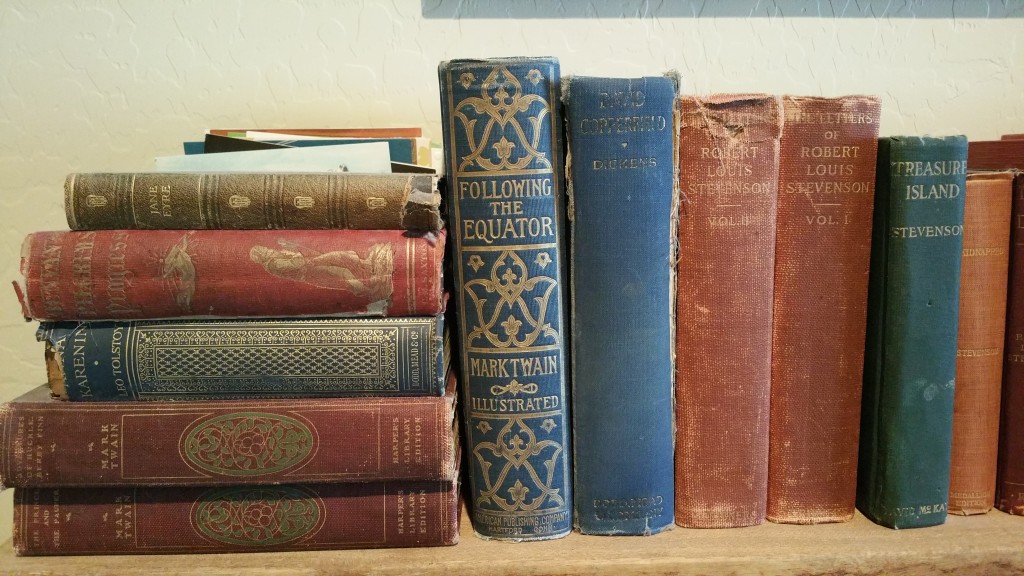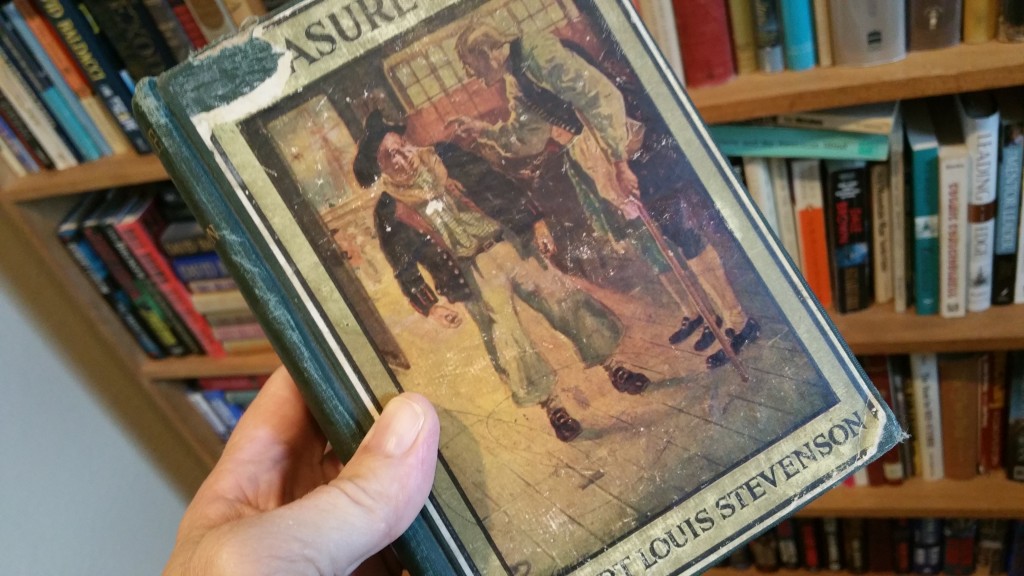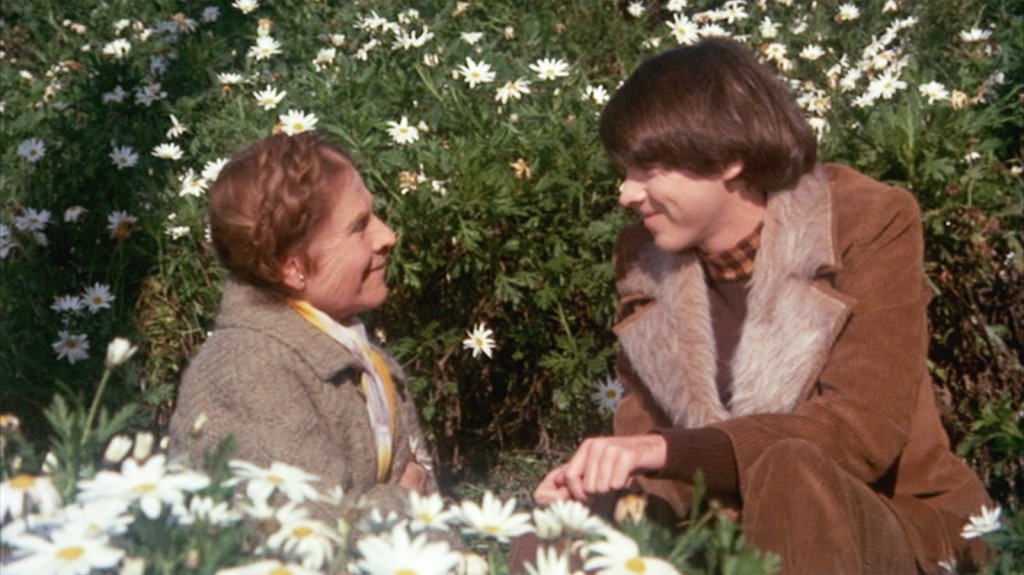My 17 year old daughter made this remark about her AP Senior Literature textbook the other day.
“I hate this book.”
That came from a kid who is and has always been an avid reader and who has a room full of bookshelves with books. She lives in a house full of books. Her dad was a high school English teacher. We have lots of my grandfather’s books in the house.
When she was younger, she wrote books. And stories of all kinds with beautiful illustrations and handcrafted covers.
She was not referring really to what was in the book at that moment. She was referring to the 1000 plus pages and the strange shape of the book. At 1000 pages, it was not a normal book shape. You know those books. Narrow and longish. If painted red it would be about the shape and weight of a big brick.
What Happened to the Aesthetic Experience of Holding/Reading a Book
These days we bemoan the loss of readers in our culture. “The book will disappear from schools in x years!” gets screamed on blogs and by irate teachers. If we keep giving our kids books that look like the K12 common anthology of whatever, and then tell them not to write in them and return them in good shape at the end of the year, how the heck are we creating a culture of readers? Readers who hold books in high regard partly because they are “their” book. Books you can write in. Or not. At least not be punished if you do. Books that for most of history have been seen as “a” novel. Or “a” book of poetry. The single book was just that. Not some writing crammed in between two covers.
I know not everyone loves the smell and texture and sounds of old pages being turned. I do.
The qualities of the reading are many. The location you are reading in. The sounds around you. Light. Texture and the meaning and the history you ascribe to the book you are reading. These are qualities that breathe some of the life into the words being read. They do not exist in and of themselves. Like lyrics to a song. You can take out the audio, but the artists created the work with audio and words. Books to me are the same.
As a former English teacher I am complicit in this awful event. I did however learn quickly and spend many hours looking for used novels for my classes at local used book stores. In my case, I had small classes so that was an option. For larger classes, buying them in bulk would be an option.
But the price of buying individual novels might be prohibitive? One of the reasons we see the large anthologies of literature is that they are cheaper. Really? I don’t think so.
What is the cost of giving students books they cannot keep and hold and add to their libraries? I think the cost is that we will create generations of people who have no use for a novel or book because they have learned from their schools that books are big ungainly masses of broken parts of the world of words. Something they have to return at the end of the semester. So long “life long learning” practices. The book becomes as dreary as some of the work assigned to it. True/false questions or summaries where individual interpretation is discouraged.
That is the price and we are busy seeing the results.
I guess I see the challenge of having consumers change shopping habits as a similarly. Walmart provides cheaper products. And in an often less humane way of shopping for goods. The smaller mom and pop shops, full of life and history, are losing ground or have long gone. Shopping has become a simple act of efficiency and value not the often beautiful process of meaningful interaction and exchanging one thing for another. With large textbooks we have traded finely crafted things for cheap production and uniformity.
And students don’t get to make the choice about the types of books used in schools. That is made by teachers, by administrators, and buy purchasing departments and contracts and agreements, and all kinds of interactions far removed from a student holding a small book.
You might recall the wisdom Maude shared with Harold sitting in a field of daisies. Maude asks Harold what kind of flower he would like to be. Harold says he would like to be a daisy because they are all the same.
Harold: Because they’re all alike.
Maude: Oooh, but they’re not. Look. See, some are smaller, some are fatter, some grow to the left, some to the right, some even have lost some petals. All kinds of observable differences. You see, Harold, I feel that much of the world’s sorrow comes from people who are this, yet allow themselves be treated as that.
We have allowed ourselves to become daisies. And we allow ourselves to be treated as such. I vote we toss out many of the massive anthologies and start buying single books and giving them to the students to keep for as long as they want. I wonder what would happen after a decade or two of practicing such a thing?


